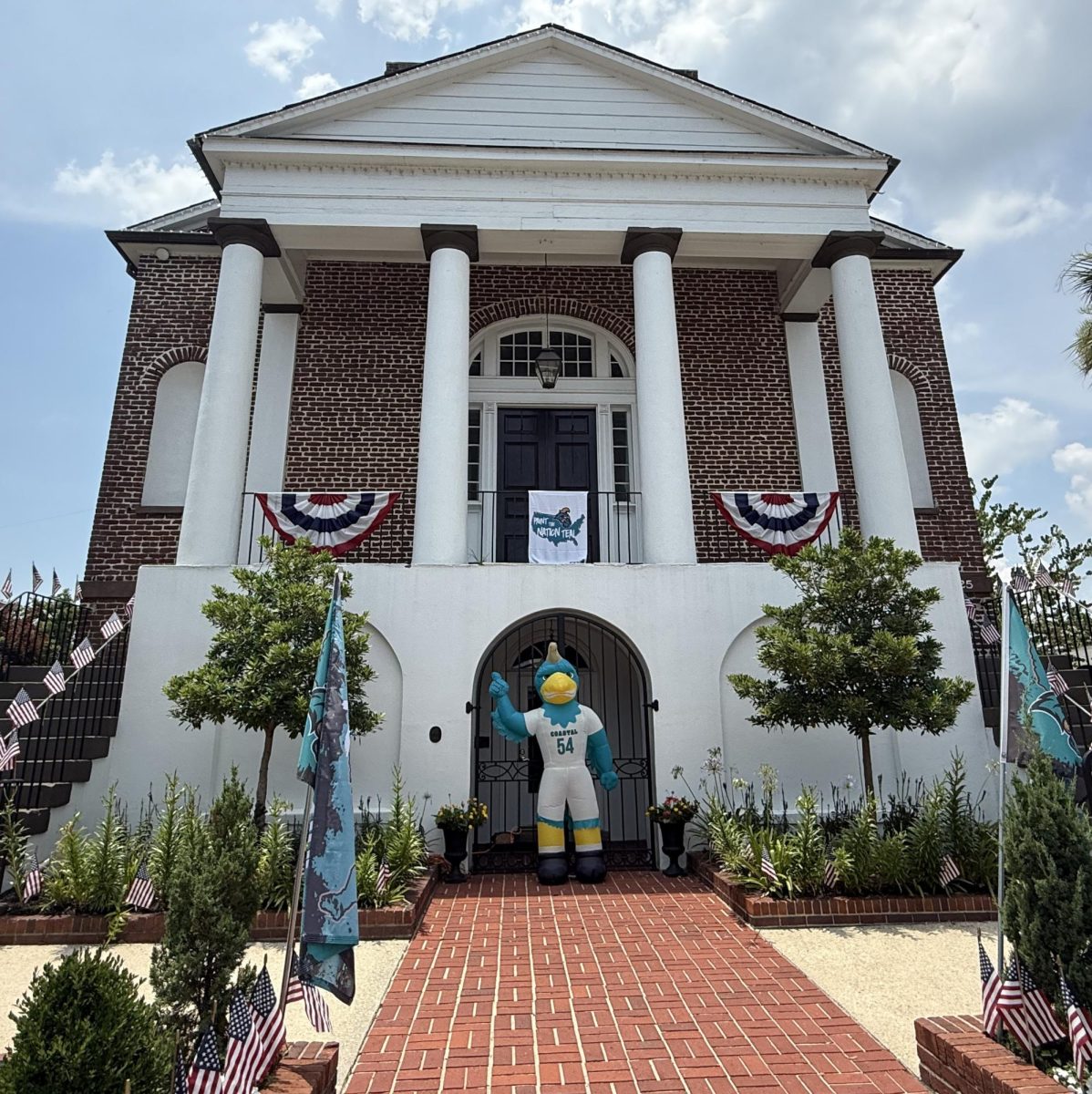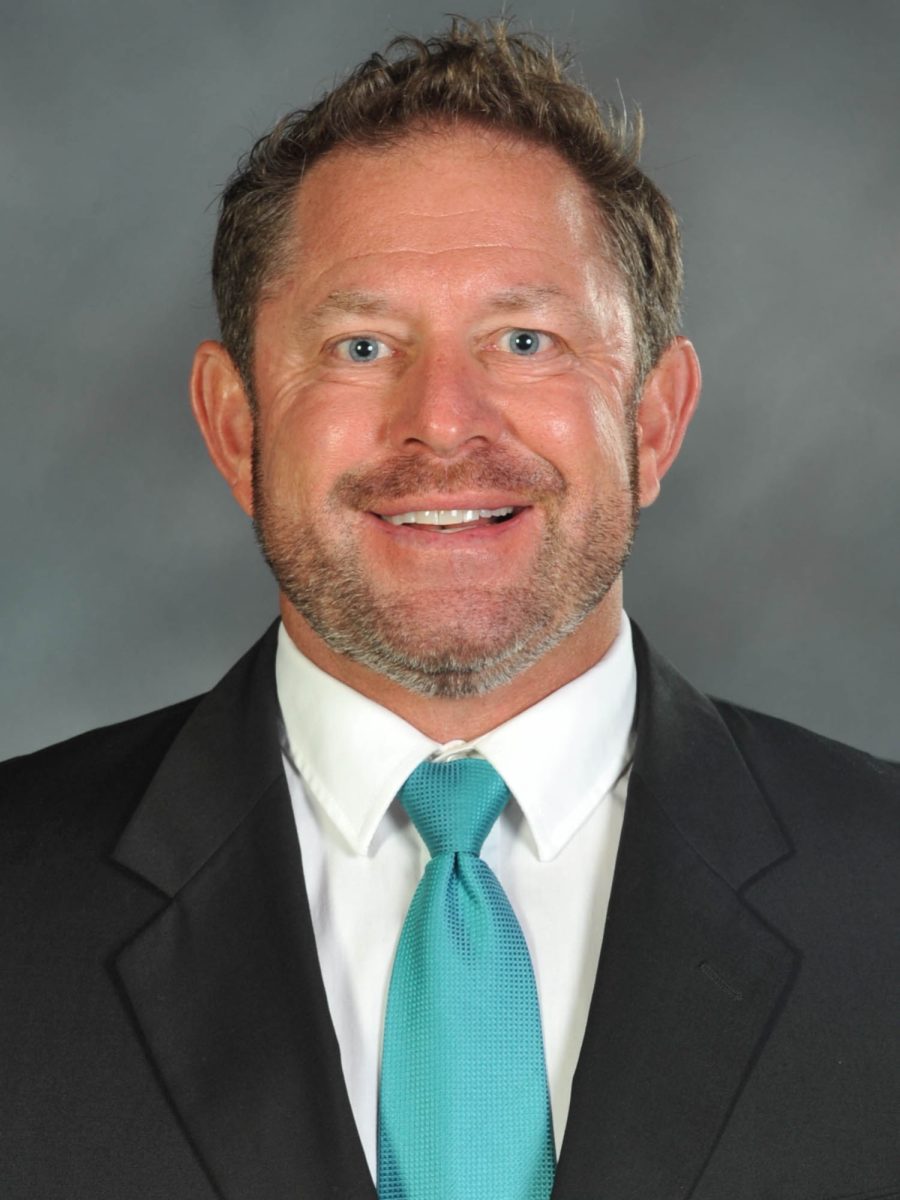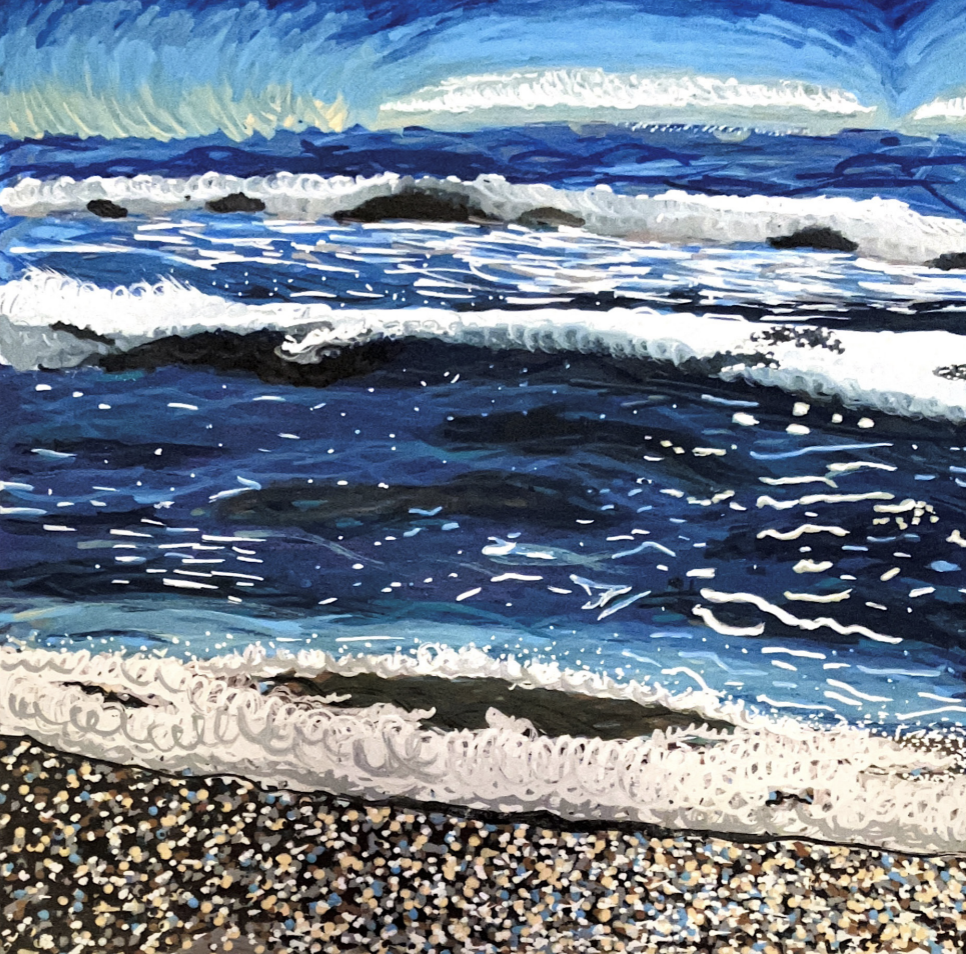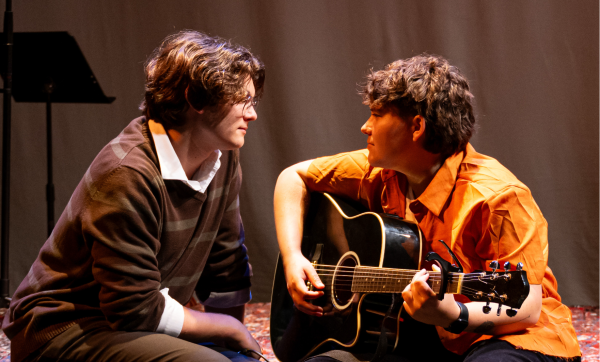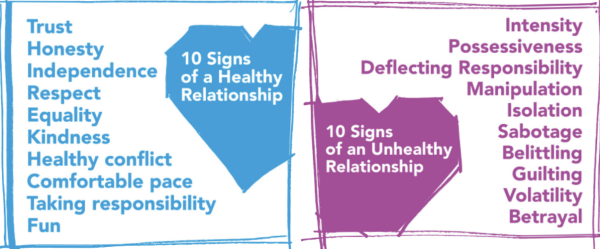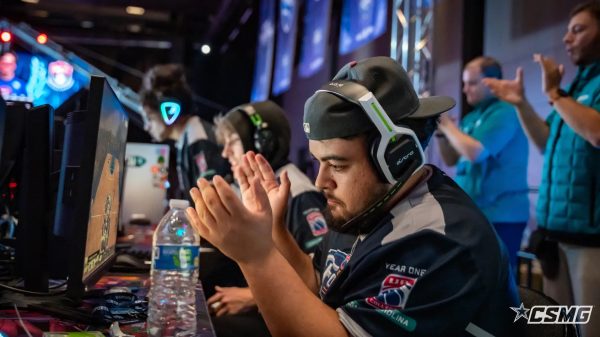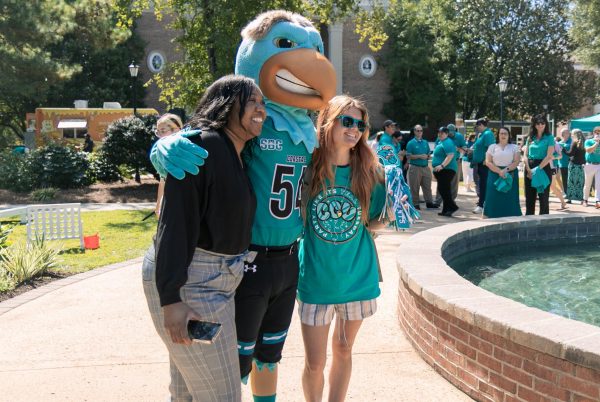The shared experience of film
National Canadian Film Day collides cultures on campus
With Hollywood being a cultural juggernaut around the world, celebrations such as National Canadian Film Day seek to bring another perspective to the global stage.
This celebration was brought to Coastal Carolina University for a second time Wednesday, April 19 in part by Tanja Warren, the special programs coordinator for the Spadoni College of Education and Social Sciences. Born and raised in Canada, Warren initially brought Canadian Film Day to school systems she worked with in Canada alongside her husband, Brad, who is an American.
When her husband was hired as a French teacher at Coastal in 2022, he decided to bring the celebration with him as a way to show Franco-American culture.
“There’s a lot of storytelling, and cultural sharing, and language learning opportunities that could be shared experience through film,” she said.
While attendance for the film screenings have been on the smaller side, she said the quality of engagement with participants has been good. On April 17, students were able to attend dialogues with a director of one of the featured films, “Beans,” and a conference panel on April 19 with First Nation Chiefs of South Carolina.
Warren said students who attended asked thoughtful questions, were eager to learn, and connected with speakers.
“We even had a student that was Chippewa from the Georgia area, and she was just so thrilled to have someone on campus to represent the First Nations community,” she said.
Writer and director of “Beans” Tracey Deer also appeared during and after the screening of her film to talk to students about her story and the filmmaking process.
The film is set during the 1990 Mohawk Resistance, a 78-day standoff between indigenous land defenders and Canadian police and military forces over the proposed expansion of a golf course onto Mohawk burial ground. A coming-of-age story following 12-year-old Tekehentahkhwa, nicknamed “Beans,” the film draws directly on Deer’s own experience facing hatred and violence against her family and friends within the Mohawk community.
“This was the ultimate passion project for me,” Deer said. “It took eight years to write start to stop. I had a lot of my own trauma to put it on the page, and then I had to recreate it for the screen.”
Deer said she had much support in production to bring her vision to life. Still, she said First Nations peoples are continuing to push for narrative sovereignty.
“For so long, our stories have been told by other people, and we are now asking people to step back, let us tell our own stories,” she said.
Deer said allyship is key and that it’s important for people to find organizations that align with their values and get involved.


